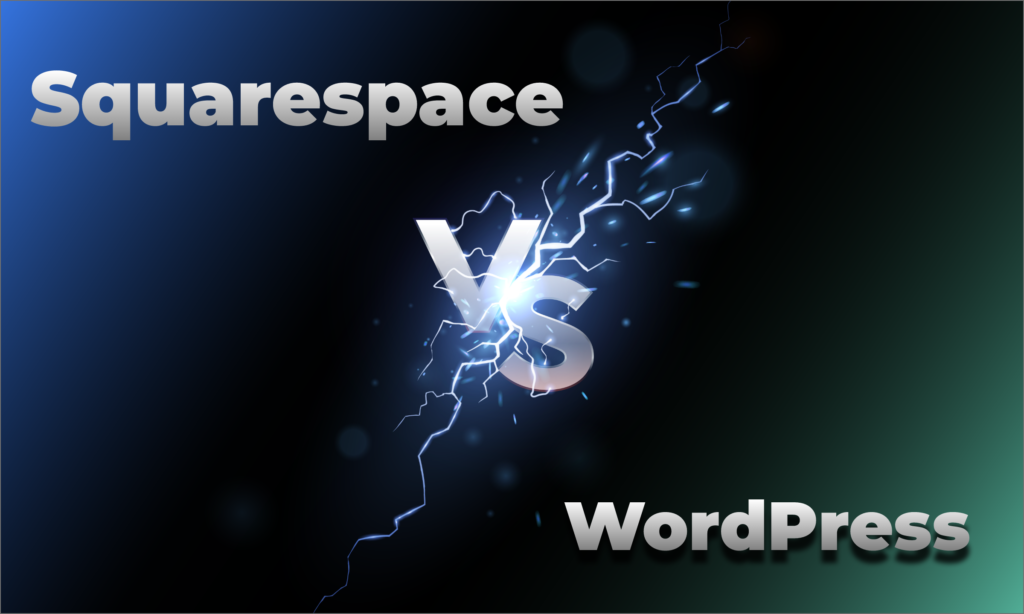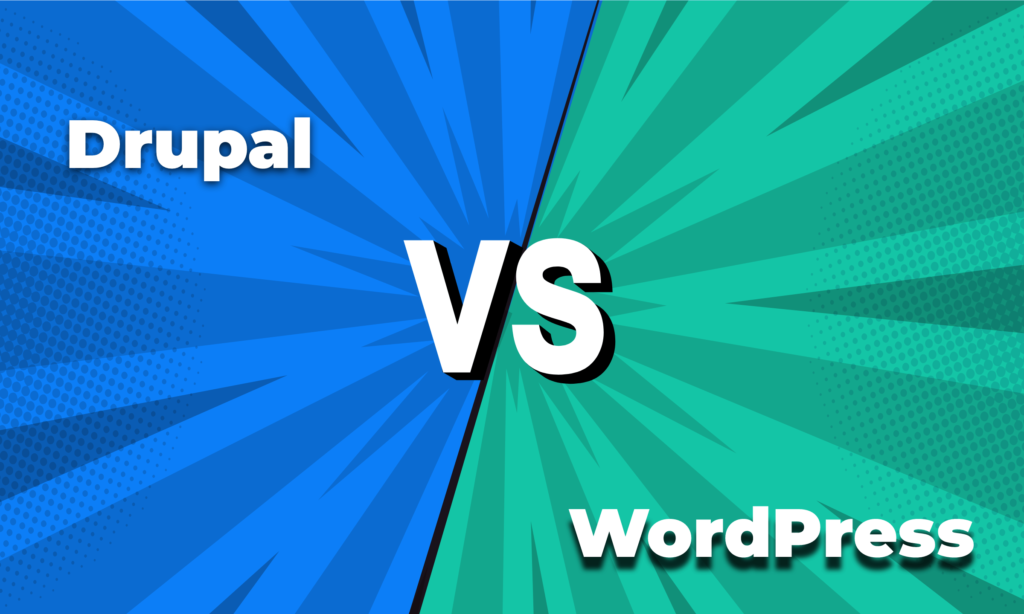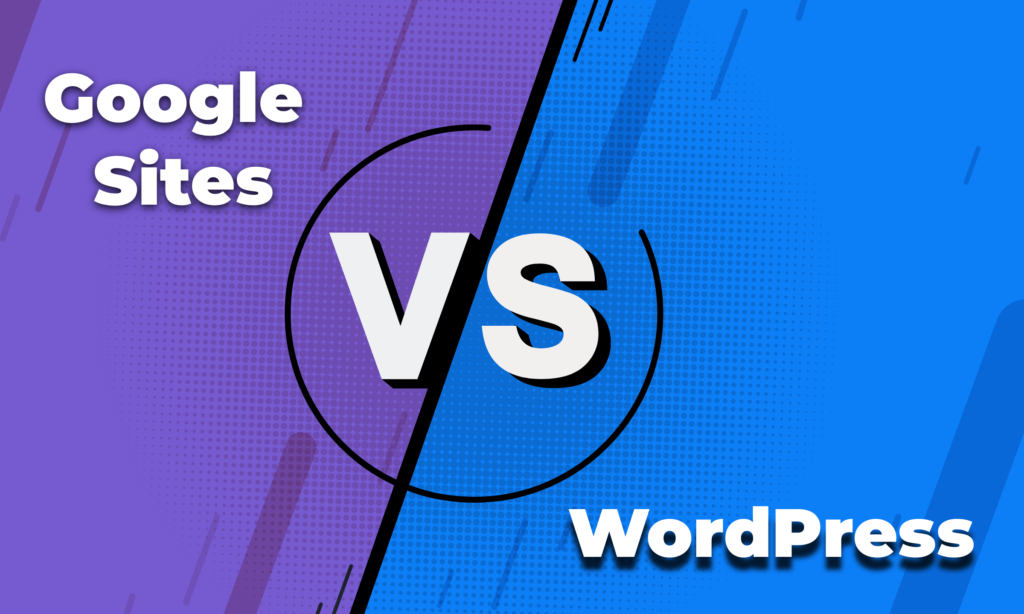Squarespace and WordPress both are very popular platforms for building and managing websites. Both platforms have all the necessary functions to create a website without any coding knowledge.
But, users often get confused between these two platforms. To put that confusion to bed, we are going to create a step-by-step comparison between Squarespace vs WordPress and come up with the key differences.
Squarespace is a software as a service (SaaS) website builder. It started as a blogging platform back in 2003. With functionalities like built-in eCommerce checkout tools, a custom domain name, and even SSL certificate protection, it quickly became one of the platforms in the world.
WordPress has been on the scene since 2003 and is dominating the internet in terms of building websites. You are able to create any kind of website within minutes using WordPress.
So, the introduction of both platforms is done, let’s get started with the differences.
Squarespace vs WordPress: The Key Differences
So we are going to find the key differences between Squarespace and WordPress.
Ease of Use
Although it is a hosted (that means the company will handle all the software updates and maintenance) platform, Squarespace is very easy to use & modify. You don’t need any additional coding skills to create a website.
You will find the ready-made templates that will help you design your website the way you want. To get started with Squarespace, all you have to do is,
- Sign up for a new account
- Answer a few questions about what type of websites you want to build
- Choose a theme for your website
- Customize or modify the theme per your specifications and your job is done.
But when you edit your content you can separately add your content or remove it if you want.
WordPress is a free and open-source content management system. You need to have a minimum range of technical experience in order to adapt quickly to WordPress.
There are plugins, themes, and documentation available that will help you quickly adapt to this content management system.
To create a WordPress website you need to follow some steps:
- Purchase a domain name & hosting plan
- Install WordPress
- Download a theme
- Add pages
- General settings
- Install essential plugins
- Optimize your site for SEO
- Publish your site
Plugins/Apps
Squarespace has all the essential apps or plugins within the dashboard. When you complete the initial installation stages in Squarespace, you can choose the features individually for your site.
Moreover, Squarespace has a variety of apps already built into the site, including tools for blogging, tracking website performance, and displaying images. All these features are in-built, and you can get them anytime with Squarespace. Apart from these, you can get some additional functions in the Squarespace app market called Extensions.
WordPress has close to 60000 plugins to expand your website. You can download them in two ways, directly from WordPress.org or from the WordPress dashboard. The plugins can be sorted using the search bar and category.
You will find plugins for,
- Page builder plugin
- SEO
- Contact form
- Email marketing
- Multivendor marketplace
However, both Squarespace and WordPress have some premium plugins or extensions. Depending on your business or site’s structure, you can purchase them.
Design & Customization
Squarespace lets you customize all the web pages within the dashboard. You can find the extensions you need by filtering the category and then start customizing your web pages.
But there is a catch – you have to explore design patterns while staying on the given format. Otherwise, you’ll have a great experience with Squarespace. Also, there are a few in-built templates available.
WordPress has several free themes out there in its ecosystem. You can customize each of the themes per your specification.
WordPress child themes like – Twenty 21, Astra, Avada, and Hello are fantastic for the initial kickstart.
After that, you can install page builder plugins like – Elementor, or Gutenberg to create any landing page layout that helps drive expected traffic to your site.
Content Management
Squarespace has an excellent feature for bloggers. You will find all the elements to organize content or blog posts from a single reverse chronological feed to a compact magazine style, such as category-wise, tag-wise, and newly updated blog-wise.
Bloggers have the full freedom to design their blogs and display them on their websites with Squarespace. You can also show your social media feed on your web page, improving the overall look of your blog site.
Like Squarespace, WordPress has a bunch of free templates for bloggers. You will find built-in features that include all the tagging and categorizing abilities that bloggers need. Also, you could find some awesome social media plugins to connect and interact with the readers.
You can access HTML in WordPress directly unlike Squarespace, for professional bloggers who want to update their website.
SEO
Squarespace has the necessary SEO features built-in like:
- Meta titles and descriptions: These are the title and paragraphs that describe a page in Google search results URL optimization: Clean up your URLs to make them more readable to search engines
- Image alt text: Alt text also helps search engines understand the purpose and relevance of each image.
- Page redirects: If you change a page’s URL and someone tries to visit the old one, Squarespace will let you automatically send them to the new one!
- Automatic sitemaps: A sitemap is a list of the different pages on your site designed to help search engines determine how they’re all related. Squarespace generates one of these for you automatically.
WordPress websites also have some built-in SEO features. But most of the platform’s advanced SEO features comes from its SEO plugins. You need to install it on your website.
Plugins like Yoast SEO, and Rank Math guide you through the best SEO practices, from creating cornerstone content to adding keywords and meta descriptions.
These are the main differences between Squarespace and WordPress.
Related Read: Best WordPress hosting for growing and high-traffic websites
Advantages of Squarespace Over WordPress
Squarespace is easier to use than WordPress. It has a user-friendly design and you can build a website without knowing how to code or without anyone’s help. Whereas WordPress has a learning curve and you need to have some technical knowledge. Or you need to get outside help.
Advantages of WordPress over Squarespace
WordPress is more budget-friendly than Squarespace. WordPress itself is free, you need to pay for the plugins, themes, and hosting.
For Squarespace, you need to pay $12-$40 per month. Moreover, WordPress has more features and customization options whereas Squarespace only has built-in features which are regularly updated.
Summary: Squarespace vs WordPress
If you are looking to create a website with no hassle and without any coding then you should choose Squarespace. It has transparent pricing plans, so there is very little chance of going overboard. This is the go-to platform for high-quality, stunning template designs, which help your site to stand out from the crowd.
But if you want extra support for your content-heavy website and looking to customize the site from a blank canvas, WordPress should be your choice. With powerful blogging tools and limitless third-party plugins to choose from, you’ll have full control over the outcome.
FAQs on Squarespace vs WordPress
Squarespace has come a long way in terms of search engine optimization tools, though WordPress still offers more SEO tools.
Generally, WordPress itself is cheaper than Squarespace. Squarespace offers 4 plans with set prices, so you can know what you’re getting into. With WordPress, it’s very easy to go over your budget, because you have to pay for plugins and additional features.
Squarespace is a good platform for blogging. It’s very user-friendly and has all the important features that you will need to create a successful blog.
Squarespace includes a solid blogging suite, quite perfect for beginners. All it takes is a minute of your time – and an example blog, full of pre-made posts for you to edit will be added.



